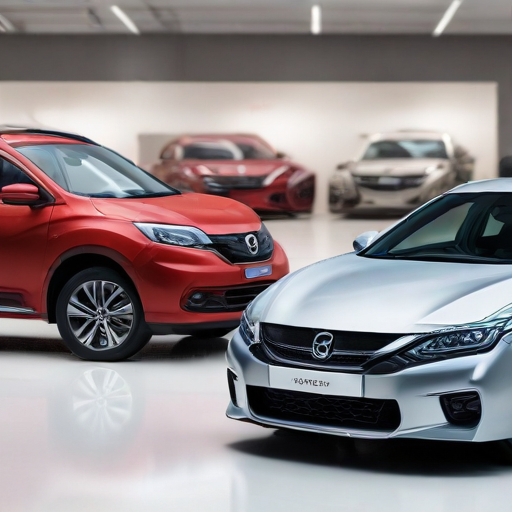BANGKOK — Japanese automakers Nissan Motor Corporation and Honda Motor Company have confirmed ongoing discussions centered around potential collaboration but have firmly denied any plans for a merger. Following speculation fueled by anonymous sources suggesting a merger to create the world’s third-largest automotive entity, Nissan’s shares surged nearly 24% in Tokyo, while Honda experienced a decline of up to 3%. The trading of Nissan’s shares was temporarily halted before resuming after both companies jointly released a statement clarifying that they are “considering various possibilities for future collaboration, but no decisions have been made.”
The automotive sector faces significant upheaval, particularly from the rise of Chinese manufacturers whose budget-friendly electric vehicles (EVs) are encroaching on markets traditionally dominated by U.S. and Japanese brands. This competitive landscape is forcing Japanese manufacturers to adapt rapidly to the transition from fossil fuel vehicles to EVs.
In August, Nissan, Honda, and Mitsubishi announced plans to collaborate on electric vehicle components, including batteries, and are jointly researching autonomous driving software to better align with the ongoing electrification trends in the industry. Prior to this, a preliminary agreement was reached in March between Honda and Nissan.
Analysts suggest that a potential merger could create a powerhouse valued at around $55 billion, allowing the two automakers to better compete with leaders like Toyota and Germany’s Volkswagen. Honda may benefit from Nissan’s experience in building electric vehicles and robust SUVs, enhancing its own product offerings.
Economic challenges have prompted Nissan to announce the reduction of its workforce by 9,000 jobs, approximately 6% of its global staff, and a 20% decrease in production capacity following a quarterly loss of 9.3 billion yen. In response to these financial strains, Nissan’s chief executive has acknowledged the need for efficiency and market responsiveness, demonstrating a proactive approach to navigating the prevailing market difficulties.
Honda, too, is grappling with tumbling profits, reporting a nearly 20% decline in the first half of its fiscal year amid declining sales in China. With automobile production figures showing Toyota leading by a significant margin in 2023, the consolidation of forces could enhance competitiveness, even with Toyota likely retaining its lead post-merger.
Looking ahead, the automotive industry may face additional challenges, including trade tariffs that could disrupt supply chains and an “affordability shift” spurred by rising costs, compelling manufacturers to reconsider pricing strategies to retain market appeal.
Overall, the discussions between Nissan and Honda mark a critical juncture in the automotive industry, emphasizing the necessity for collaboration and innovation in a rapidly changing market. As they explore new opportunities together, there’s a hopeful outlook that such partnerships might pave the way for a stronger, more resilient automotive sector in Japan and beyond.
